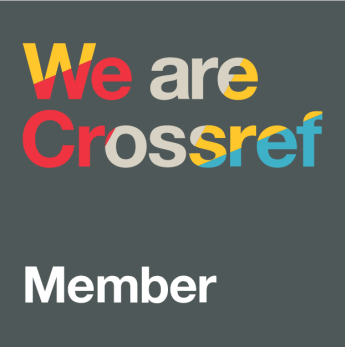Open Access Statement
Quanta: Jurnal Kajian Bimbingan dan Konseling dalam Pendidikan is committed to promoting the broadest possible access to the published research and ensuring that it can be freely read, downloaded, copied, distributed, printed, searched, or linked to in full text, used as data for software, or utilised for any other lawful purpose without financial, legal, or technical barriers.
All articles publish in Quanta: Jurnal Kajian Bimbingan dan Konseling dalam Pendidikan are licensed under the Creative Commons Attribution-ShareAlike 4.0 International License (CC BY SA 4.0). This licence allows others to share and adapt the work, provided that appropriate credit is given to the original author(s) and the source, a link to the license is provided, and any changes made are indicated.
Key Points of Our Open Access Policy:
- Immediate Open Access: All articles are freely available to the public immediately upon publication, without any embargo period.
- Author Rights: Authors retain copyright to their work by publishing in Quanta: Jurnal Kajian Bimbingan dan Konseling dalam Pendidikan, authors grant the journal the right to publish the article and identify itself as the original publisher.
- Reuse and Redistribution: Articles can be reused and redistributed for any purpose, including commercial use, as long as appropriate credit is given to the original work, a link to the license is provided, and any changes made are indicated. If you remix, transform, or build upon the material, you must distribute your contributions under the same license as the original.
- Accesibility: we ensure that the full text of all published articles is available in pdf format to the enhance eccessibility and ease of use.
- Transparency: Licensing terms are clearly indicated on the website and within the full text of all published articles. This includes a link to the reative Commons Attribution-ShareAlike 4.0 International License terms.
- No Registration Required: Readers are not required to register to access any part of the journal content.
Quanta: Jurnal Kajian Bimbingan dan Konseling dalam Pendidikan adheres to the Principles of Transparency and Best Practice in Scholarly Publishing as outlined by COPE. Our commitment ensures that editorial decisions are based on scholarly merit and that the journal maintains the highest ethical publishing standards.
This journal provides immediate open access to its content on the principle that making research freely available to the public supports a greater global exchange of knowledge. This journal is open access journal which means that all content is freely available without charge to users or / institution. Users are allowed to read, download, copy, distribute, print, search, or link to full text articles in this journal without asking prior permission from the publisher or author.
To achieve open access to scholarly journal literature, we recommend two complementary strategies.
I. Self-Archiving: First, scholars need the tools and assistance to deposit their refereed journal articles in open electronic archives, a practice commonly called, self-archiving. When these archives conform to standards created by the Open Archives Initiative, then search engines and other tools can treat the separate archives as one. Users then need not know which archives exist or where they are located in order to find and make use of their contents.
II. Open-access Journals: Second, scholars need the means to launch a new generation of journals committed to open access, and to help existing journals that elect to make the transition to open access. Because journal articles should be disseminated as widely as possible, these new journals will no longer invoke copyright to restrict access to and use of the material they publish. Instead they will use copyright and other tools to ensure permanent open access to all the articles they publish. Because price is a barrier to access, these new journals will not charge subscription or access fees, and will turn to other methods for covering their expenses. There are many alternative sources of funds for this purpose, including the foundations and governments that fund research, the universities and laboratories that employ researchers, endowments set up by discipline or institution, friends of the cause of open access, profits from the sale of add-ons to the basic texts, funds freed up by the demise or cancellation of journals charging traditional subscription or access fees, or even contributions from the researchers themselves. There is no need to favor one of these solutions over the others for all disciplines or nations, and no need to stop looking for other, creative alternatives.













